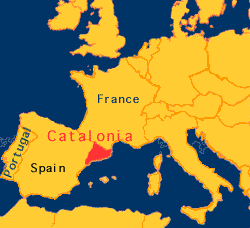 |
| Catalonia again tries for independence |
The Catalan government – led by spokesman Carles Puigdemont
– is to oversee a simple vote of “In or Out” that, even though it will likely
draw a lot of interest and bring a big turnout, will unfortunately have no
legal standing in Spain at all.
This basically means that unless the Madrid government of
Prime Minister Mariano Rajoy sanctions the referendum – and they won’t – then
the referendum will only be symbolic.
No one will be surprised to hear that the Catalan
separatists continue their push for independence. It wouldn’t even be the first
time that they have held a symbol referendum like the one being held later this
year. Something similar happened back in 2014. The calls for separation from
the Catalan people went unheeded back then by the Madrid government, and it’s
likely going to be the same this time around.
There is a difference this time in that the referendum has
been organised by the Catalan government rather than by passionate voters,
which is what happened in 2014. This has led to people expecting that over 2
million people might make their voices heard, even if the result is still
likely to only be symbolic. If the referendum gets a lot of support for
independence then it will make it even harder for Madrid to continue to ignore
the demand for change and independence.
While it is unlikely for Madrid to grant complete
independence for Catalan, there could be regional elections for Catalonia in
the future. It’s possible that Spain could at least afford the region some more
autonomy, if not independence.
Madrid currently holds power to directly intervene in the
Catalan government – something that continues to irk politicians and Catalans
alike. The region has its own language and can turn Barcelona into their own
internationally-recognised and respected capital city.
However, the Spanish economy has continued to grow and
recover in the past few years, which has diminished the calls for independence
in Catalonia somewhat. The latest official polls suggested that 48.5% of
Catalans are interested in maintaining the current status quo. Only 44.3% of
those polled were looking for independence from Spain.


